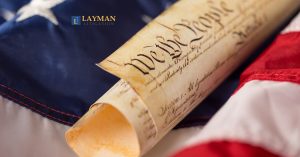Introduction
Despite the outpouring of works on constitutional theory in the past several decades. No general introduction to the field has been available. Stephen Griffin provides here an original contribution to American constitutional theory in the form of a short. Lucid introduction to the subject for scholars and an informed lay audience. He surveys in an unpolemical way the theoretical issues raised by judicial practice in the United States. Over the past three centuries, particularly since the Warren Court, and locates both theory and practices. That has inspired disputes among jurists and scholars in the historical context. At the same time, he advances an argument about the distinctive nature of our American constitutionalism, regarding it as an instance of the interpenetration of law and politics[1].
American Constitutionalism is unique in considering the perspectives of both law and political science in relation to constitutional theory. Constitutional theories produced by legal scholars do not usually discuss state-centered theories of American politics. The importance of institutions, behaviorist research on judicial decision-making, or questions of constitutional reform. But this book takes into account the political science literature on these and other topics. The work also devotes substantial attention to judicial review and its relationship to American democracy and theories of constitutional interpretation.
American constitutionalism
The founders of the United States deeply influenced republicanism, Locke The optimism of the European Enlightenment. George Washington, John Adams, and Thomas Jefferson all concurred that laws, rather than men. Should be the final sanction and that government should be responsible to the governed. But the influence of Locke and the Enlightenment was not entirely happy. Adams, who followed Washington as president, prescribed a constitution with a balance of executive and legislative power checked by an independent judiciary.
The federal constitution, moreover, could be amended only by a unanimous vote of the states. Eager to safeguard state liberties and the rights of property, the founding fathers gave the federal government insufficient revenues and coercive powers. As a result of which the constitution was stigmatized as being “no more than a Treaty of Alliance. ” Yet the federal union preserved.
The civil power controlled the military, and there was religious tolerance and freedom of the press and economic enterprise. Most significantly, the concept of natural rights had found expression. The Declaration of Independence (1776) and influenced markedly political and legal developments. The ensuing decades, as well as inspired the French Declaration of the Rights of Man and of the Citizen (1789).American constitutionalism
The founders
The founders of the United States were deeply influenced by republicanism, Locke, and with the optimism of the European Enlightenment. George Washington, John Adams, and Thomas Jefferson all concurred that laws, rather than men, should be the final sanction and that government should be responsible to the governed. But the influence of Locke and the Enlightenment was not entirely happy. Adams, who followed Washington as president, prescribed a constitution with a balance of executive and legislative power checked by an independent judiciary.
The federal constitution, moreover, could be amended only by a unanimous vote of the states. Eager to safeguard state liberties and the rights of property, the founding fathers gave the federal government insufficient revenues and coercive powers, as a result of which the constitution was stigmatized as being “no more than a Treaty of Alliance.” Yet the federal union was preserved. The civil power controlled the military, and there was religious tolerance and freedom of the press and economic enterprise. Most significantly, the concept of natural rights had found expression in the Declaration of Independence (1776) and was to influence markedly political and legal developments in the ensuing decades, as well as inspire the French Declaration of the Rights of Man and of the Citizen (1789)[2].
The development of liberal theory
Logical-positivist interlude
Political and ethical philosophy in English-speaking countries in the first half of the 20th century was inhibited to some extent. The advent of in the early 1930s of logical positivism. Which conceived of knowledge claims on the model of the hypotheses of natural science. According to the simplest version of logical positivism, genuine knowledge claims can be divided into two groups.
(1) those that can be verified or falsified on the basis of observation, or sense experience (empirical claims); and (2) those that are true or false simply by virtue of the conventional meanings assigned to the words they contain (tautologies or contradictions), along with their logical implications.
All other claims, including the evaluative assertions made by traditional political and ethical philosophers. Literally meaningless, hence not worth discussing. A complementary view is held by some logical positivists. That an evaluative assertion, properly understood, is not a statement of fact but either an expression of the speaker’s attitude. (e.g., of approval or disapproval) or an imperative—a speech act aimed at influencing the behavior of others. This view of the language of ethical and political philosophy tended to limit serious study in those fields until the 1960s when logical positivism came to be regarded as simplistic in its conceptions of linguistic meaning and scientific practice[3].
[1] https://www.cato.org/cato-journal/fall-2018/american-constitutional-theory-history-implications-european
[2] https://press.princeton.edu/books/paperback/9780691002408/american-constitutionalism
[3] https://www.britannica.com/topic/political-philosophy/Habermas













